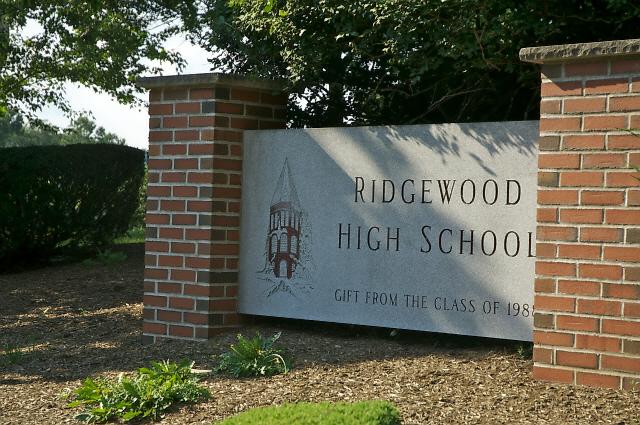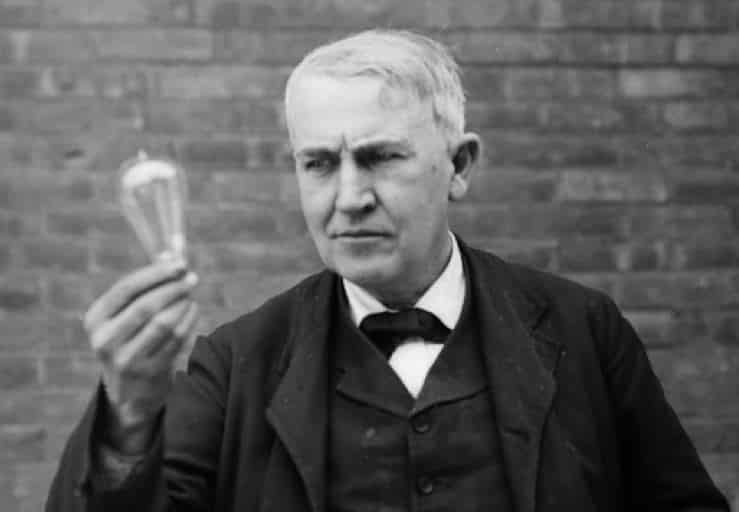
the staff of the Ridgewood blog
Ridgewood NJ, Super Science Saturday, hailed as the “Greatest Science Extravaganza in Northern New Jersey,” brings fun and excitement to science through professional presenters and student projects.

the staff of the Ridgewood blog
Ridgewood NJ, Super Science Saturday, hailed as the “Greatest Science Extravaganza in Northern New Jersey,” brings fun and excitement to science through professional presenters and student projects.

the staff of the Ridgewood blog
Ridgewood NJ, Ridgewood High School has earned the College Board’s AP® Computer Science Female Diversity Award for expanding young women’s access to AP Computer Science Principles (CSP). This award acknowledges 1,119 schools for their work toward equal gender representation during the 2019-20 school year—nearly 37% more than the 818 schools recognized the previous year. Ridgewood High School is is one of only 831 schools to be recognized for achieving this important result in CSP.

the staff of the Ridgewood blog
Ridgewood NJ, Super Science Saturday, hailed as the “Greatest Science Extravaganza in Northern New Jersey,” brings fun and excitement to science through professional presenters and student projects.

the staff of the Ridgewood blog
Trenton NJ, Legislation sponsored by Senator Declan O’Scanlon and Assemblywoman Serena DiMaso (both R-Monmouth) which makes certain information related to public health emergencies accessible under the Open Public Records Act (OPRA) was approved by the Assembly Health Committee.

By Robert Auth
Assemblyman Robert Auth represents the 39th Legislative District, which includes part of Bergen and Passaic counties. He has been a member of the Assembly since 2014.
A respiratory virus tragically attacking New Jersey’s most vulnerable populations is nothing new. In fact, it’s a really bad case of déjà vu.
The pandemic scourge ravaging the state has a sad unpleasant precedent. More than a year prior to the COVID-19 pandemic, an adenovirus swept through the Wanaque Center for Nursing and Rehabilitation killing 11 children and sickening 36 residents.

the staff of the Ridgewood blog
Trenton NJ, Senator Anthony M. Bucco reiterated his concerns that a host of COVID-19 responses ordered by the administration of Governor Phil Murphy have not been driven by data as the governor has repeatedly claimed.
“We’ve all heard the governor repeat his refrain that ‘data determines dates,’ but we have a pile of mounting evidence to the contrary,” said Bucco (R-25). “Health experts in the administration who have the data that should be guiding the State’s COVID-19 response efforts have said they were never consulted before announcements were made by Governor Murphy. To the contrary, those career public health officials were only asked to help justify the governor’s completely arbitrary decisions after those decisions had already been made. It’s absolutely unbelievable.”
Continue reading Administration Insiders Say Murphy’s COVID Decisions Not Data Driven

the staff of the Ridgewood blog’
Albany NY, Governor Andrew Cuomo made at the end of his daily COVID-19 press briefing on Thursday ruffled so many feathers. Saying chicken wings do not count as “food”. The lowest level of substantive food is “sandwiches”. Soup is mentioned as real food, and chicken wings are not.
Continue reading NY Governor Cuomo says “Let them eat sandwiches”

the staff of the Ridgewood blog
Ridgewood NJ, Governor Murphy continues to promote the idea he is making decisions on reopening the state of New Jersey based on “science” ? According to “Murphy’s Science” School graduations are dangerous yet mass protests are not ? Maybe the real problem is just that , the focus on government sanctioned protests and not education. Worse yet Murphy joined the protests with the intent of protesting himself ? I mean he is the governor after all .

Everything around is about science, but it cannot be denied that science, as a subject in school, can be quite challenging. On the other hand, science is actually quite interesting and fun. Learning science can create a significant positive impact for your child. This is the reason why when you see signs that your little one is interested in science, encourage his/her curiosity, and inspire your child to be a scientist. Apart from this, there are several other reasons below.
Scientists have a natural love for learning.
Motivate your little one to be a scientist because scientists have a natural love for learning. A great life lesson to teach your children is to continuously learn, explore and discover. They will surely benefit from this trait one day. Science is a great avenue to do so because it offers a wide variety of topics to explore. Consider getting your children a STEM subscription box because this is a great program to continuously learn. With a subscription, you will be getting a new toy, complete with all instructions, to experiment with monthly. This will foster your child’s eagerness to unceasingly learn because for them, it seems like they are merely playing with a toy. These are age-appropriate educational toys, with some even designed for toddlers and preschoolers. There are also those suited for older kids, as well as pre-teens.
Scientists are critical thinkers.
Encourage your kid to be a scientist because scientists are critical thinkers. Critical thinking is important because it allows your child to make logical decisions that paves the way for problem-solving strategies and techniques. Critical thinking is not restricted to science and it is necessary in all aspects and various areas such as in the financial sector, medical field, and in the industry overall. Apart from this, critical thinkers are curious by nature, which is important to understand all the things around us. Critical thinking also enhances creativity, reinforces problem solving abilities, and fosters independence. All these traits are definitely beneficial for your child.
Scientists open the doors to various disciplines.
Persuade your child to be a scientist because scientists open the doors to various disciplines. For instance, science likewise encourages your child to learn mathematics because math is the primary language of science. In addition to this, to understand how stuff works now entails the need to know how things worked before, paving the way for your child to learn a bit about history. Writing and language are also other disciplines which are directly related to science. Thus, it can be said that scientists are not only experts in the field of science, but they are also adept in mathematics, history, and language.
Scientists provide an overview of the future.
The previous discoveries of scientists enabled mankind to experience technological advancements in different fields. Biomedical science brought about several cures for various diseases. Agricultural science, for instance ensures that there is food on the table, while physics and mechanical science are all about your actions and motion and how it can be optimized. Nevertheless, the future greatly depends on the scientists of today, as well as the budding scientists such as your little one.
Thereby, if you are wondering how you can encourage your child to become a scientist, then try some of the tips below.
1. Introduce your child to real scientists. Apart from getting him all familiar with the famous scientists of all times, acquaint him with living scientists such as those usually in the science museum or local university. Give your child a chance to interact with them to allow them to have an idea of what it is like to become a real scientist.
2. Persuade your child to ask questions. Scientists love to ask endless questions of how and why. When your child starts to speak up and become inquisitive, try to answer his inquiries instead of shrugging him off.
3. Let your child take things apart. While you may be bothered by the mess that your little one might create, try not to think about it. Instead, encourage him to go ahead and take things apart, before trying to put it together again.
To wrap things up, it cannot be denied that science is part of life and it is everywhere. Science is challenging, interesting and fun. This world needs more scientists and their discoveries to continuously progress and heal. Hence, you can never go wrong in encouraging your little one to become a scientist. The traits of a scientist are traits that are meaningful for your child’s growth.

the staff of the Ridgewood blog
Trenton NJ, Governor Phil Murphy today announced details of his “Computer Science for All” initiative, a plan to bring technology and programming-focused classes to schools across New Jersey. The FY 2019 budget includes $2 million to increase the number of public high schools that offer advanced computer science courses.

the staff of the Ridgewood blog
Ridgewood NJ, Ridgewood teen Deena Shefter has been awarded a $25,000 Davidson Fellows Scholarship. Shefter attended Bergen County Academies (BCA), a STEM-focused magnet high school in Bergen County , she is a member of the National Honor Society and the National Spanish Honor Society. Her research investigates the connection between multiple sclerosis and osteoporosis .
Continue reading Ridgewood Teen Wins $25,000 Davidson Fellows Scholarship

photo courtesy of the Ridgewood High School Alumni Association
October 18,2017
the staff of the Ridgewood blog
Ridgewood NJ, Last week the eminent physicist Dr. David Coward spoke to RHS students. Physicist, Emeritus at Stanford University and a member of RHS Class of 1952, Dr. Howard was part of the collaboration that ultimately led to the discovery of quarks in 1968, for which the 1990 Nobel Prize in Physics was awarded. He is also a member of RHS Distinguished Alumni.
David Coward received his Bachelor of Engineering Physics from Cornell University and his Ph.D. in Physics from Stanford University. An experimental physicist at the Stanford Linear Accelerator Center (SLAC), he made indispensable contributions to the SLAC-MIT experiments that discovered the quark structure of the proton and neutron. The 1990 Nobel Prize in Physics was awarded for his work. As a member of CERN’s NA31 Collaboration, he shared the 2005 European Physics Society High Energy and Particle Physics Prize. He is now Physicist Emeritus at Stanford University. Inducted 2008.
David Coward, was awarded the RHS Distinguished Alumni Award during the 60th reunion of the class in October 2012.

October 28,2016
by the
National Assessment Governing Board
Ridgewood NJ, The Nation’s Report Card: 2015 Science shows scores have improved overall, and higher percentages of the nation’s fourth- and eighth-grade students demonstrated mastery of science on the 2015 assessment compared with the 2009 assessment. The results also show score gaps narrowing by race/ethnicity. The average score of 12th-grade students did not change between 2009 and 2015.
In 2015, 22 percent of 12th-graders performed at or above the Proficient achievement level, which denotes competency over challenging subject matter. Additionally, 38 percent of fourth-graders and 34 percent of eighth-graders performed at or aboveProficient — an increase of 4 percentage points at both grades compared with 2009.
“Seeing these gains in science from our fourth- and eighth-graders makes me hopeful about the future of our nation’s students,” said former Wyoming Gov. James Geringer, director of policy and public sector strategies at the Environmental Systems Research Institute and member of the National Assessment Governing Board, which sets policy for NAEP. “But that progress needs to continue since only about one-third of students, or even fewer, have the science skills they need.”
The National Assessment of Educational Progress (NAEP) — known as The Nation’s Report Card — is the largest nationally representative, continuing assessment of what America’s students know and can do in various subjects. The 2015 science assessment measured students’ knowledge of physical science, life science, and Earth and space sciences. The assessment also measured how well students implement science practices, like using scientific principles and engaging in scientific inquiry.
National science results are available for students at grades four, eight, and 12; state-level results are available at grades four and eight.
National highlights include:
Performance Improves at Grades Four and Eight
At grades four and eight, students scored higher in 2015 than in 2009 in all three science content areas: physical science, life science, and Earth and space sciences.
From 2009 to 2015, the percentage of students performing below the Basic achievement level decreased by 4 percentage points at grades four and eight.
Score Gaps Narrow by Race and Gender at Grades Four and Eight
The score gaps between black and white students and between Hispanic and white students at both grades four and eight have narrowed since 2009.
In 2015, fourth-grade male students scored about the same as fourth-grade female students, eliminating the gender difference.
At grade eight, male students scored higher than female students, but the difference between their scores in 2015 was smaller than the difference between their scores in 2011 (3 points versus 5 points).
At grade 12, male students outperformed female students by 5 points. The gap between their scores in 2015 was not statistically different from the 2009 gap.
State highlights include:
Some Sizable Gains Made at Grades Four and Eight
Between 2009 and 2015, scores at both grades rose in 15 states and jurisdictions: Arizona, Arkansas, Department of Defense Education Activity (DoDEA) schools, Florida, Georgia, Hawaii, Indiana, Mississippi, North Carolina, Oklahoma, South Carolina,Tennessee, Texas, Utah and Wyoming. Of these, DoDEA schools, Tennessee, Utah and Wyoming had a percentage of students performing at or above Proficient that was greater than the average percentage for national public schools in 2015.
From 2009 to 2015, four states and jurisdictions showed score gains at grade four that were larger than the national average score gain: Arizona, DoDEA schools, Georgia and Tennessee. At grade eight, three states had this distinction: Nevada, Tennesseeand Utah.
Score Gaps Narrow and Close by Race and Gender
The following states saw a statistically significant narrowing of average score gaps between black and white students from 2009 to 2015: Arkansas (a decline of 10 points), Oklahoma (8.9) and Tennessee (8.6) at grade four; and Illinois (7.8) at grade eight.
The following states saw a statistically significant narrowing of the average score gap between Hispanic and white students from 2009 to 2015: Massachusetts (a decline of 8.7 points), Connecticut (8.2), Illinois (6.7) and Nevada (5.9) at grade four; and New York (8.9), Illinois (7.4), Connecticut (7.1), Wyoming (6.9) and Arizona (5.6) at grade eight.
For fourth grade, several states closed the average score gap by gender — meaning statistically significant score differences between female and male students were found in 2009 but not in 2015 — specifically, Hawaii (a decline of 4.2 points), Maine(3.5), North Carolina (2.4), South Dakota (2.4) and Ohio (1.8).
The gender score gap closed at grade 8 in Wyoming (a decline of 6.5 points), Rhode Island (6.4), New Mexico (4.8), Georgia (4.6), and Montana (4.0), and in 13 other states.
Tennessee stands out as a state that showed large score gains at grades four and eight and narrowed score gaps between black and white fourth-graders from 2009 to 2015, and its students are outperforming the nation (public schools) at grades four and eight.
“We’ve set high expectations across the board for our students in Tennessee, and our NAEP performance continues to reflect the hard work and progress our students and teachers are making,” said Candice McQueen, Tennessee commissioner of education. “To me, the most encouraging part of today’s science results is that all of Tennessee’s students are showing what is possible. We’ve narrowed or eliminated gaps between groups of students, and we are continuing to make huge strides in where we have been historically to build a new future for our children.”
Emphasizing science in and outside of the classroom is tied to student performance in the subject, as shown in data collected through NAEP student and teacher questionnaires about educational experiences. Overall, students with more exposure to science scored better on the 2015 science assessment than students with less exposure:
Eighth-graders who participate in hands-on activities or investigations in science class every day or almost every day, as reported by their teachers, scored 12 points higher than students who never or hardly ever engage in these activities.
Eighth-grade students who self-reported that they have visited a museum, zoo or aquarium to learn about science outside of a school trip scored 7 points higher than students who have not participated in those activities outside of school.
Students who have teachers with access to school-provided scientific tools for teaching science — such as telescopes, microscopes and thermometers — also scored higher. Eighth-graders whose teachers reported the highest level of access to these tools scored 16 points higher than eighth-graders whose teachers reported no access. Twelfth-graders who reported having access to such tools scored 37 points higher than 12th-graders without access.
“Students who have more opportunities to dig in deep and fully engage do better in science,” said Missouri science teacher Susan German, a panelist at the Oct. 27 event announcing the NAEP results. “They should be spending less time buried in a textbook and more time doing hands-on activities, such as investigating which insulator works best in keeping soda cold or how height and mass influence the size of impact craters. Parents should do as much as they can to expose their children to science outside of the classroom too — even if it’s as simple as taking them on a walk through a park.”
About the Assessment
The 2015 science assessment was conducted in grades four, eight and 12 and reported at the national level for each. State-level results for grades four and eight are available for 46 states and U.S. Department of Defense schools that voluntarily participated in the assessment. (Alaska, Colorado, the District of Columbia, Louisiana and Pennsylvania did not have the necessary sample size in 2015 for state-level results to be reported.) For grades four and eight, national results reflect the scores of both public and private school students, while state-level results reflect the scores of public school students only.
NAEP performance results are presented as average scale scores and as achievement levels, reported as the percentages of students performing at or above Basic, Proficient and Advanced. Basic denotes partial mastery of the subject, Proficient denotes competency over challenging subject matter and Advanced represents superior work. Scale scores range from 0 to 300. Because NAEP scores and achievement levels are developed independently for each subject, results cannot be compared across subjects. Performance results also cannot be compared with data from before 2009, when the new science framework was introduced. The last assessment for fourth- and 12th-graders took place in 2009, and the last assessment for eighth-graders was administered in 2011.
Check out this video illustrating NAEP data to see how science education can translate into a related career path.
See the full report card here.
The National Assessment of Educational Progress is the largest nationally representative, continuing evaluation of the condition of education in the United States. It has served as a national yardstick of student achievement since 1969. Through The Nation’s Report Card, NAEP informs the public about what American students know and can do in various subject areas and compares achievement among states, large urban districts and various student demographic groups. The National Assessment Governing Board oversees and sets policy for NAEP. Follow NAEP on Facebook and Twitter.
NAEP is a congressionally authorized project sponsored by the U.S. Department of Education. The National Center for Education Statistics, within the Institute of Education Sciences, administers NAEP. The commissioner of education statistics is responsible by law for carrying out the NAEP project.
The National Assessment Governing Board is an independent, nonpartisan board whose members include governors, state legislators, local and state school officials, educators, business representatives and members of the general public. Congress created the 26-member Governing Board in 1988 to oversee and set policy for NAEP. Follow the Governing Board on Facebook and Twitter.

NOAA Radiosonde Data Shows No Warming For 58 Years
In their “hottest year ever” press briefing, NOAA included this graph, which stated that they have a 58 year long radiosonde temperature record. But they only showed the last 37 years in the graph.
https://realclimatescience.com/2016/03/noaa-radiosonde-data-shows-no-warming-for-58-years/

Ridgewood NJ, Find out first-hand why Super Science Saturday, the biggest science and technology exhibition in Northern New Jersey, has won a prestigious award from the New Jersey Inventors Hall of Fame.
Science professionals, parents, teachers and students are all welcome to play a role in making this award-winning event an even bigger success in 2016. Super Science Saturday welcomes new members for the all-volunteer Executive Committee that is planning the next exhibition, scheduled for February 27 at Ridgewood High School.
There also are a variety of other volunteer opportunities for those who are passionate about science and technology and want to be involved in a high-impact program like Super Science Saturday– from helping spread the word about this award-winning exhibition, coordinating with new adult and student presenters or just assisting on the day
The 28th annual Super Science Saturday is a particularly special event, as the New Jersey Inventors Hall of Fame (NJIOF) recently recognized Super Science Saturday for its
“Advancement of Invention & Process.” This award recognized Super Science Saturday for creating and sustaining this annual half-day exhibition, which showcases the marvels of science and technology for attendees of all ages.
NJIHOF honors inventors whose lifetime work has contributed significantly to the prosperity of New Jersey. Inaugural award winners include Albert Einstein and Thomas Edison. Over the years, NJIOF has recognized Nobel Laureates and prominent researchers in many fields, including those who have pioneered life-saving drugs, and contributed to advanced communications technology, astrophysics and NASA missions.
Super Science Saturday’s Executive Committee is proud to be recognized along with such distinguished award-winners.